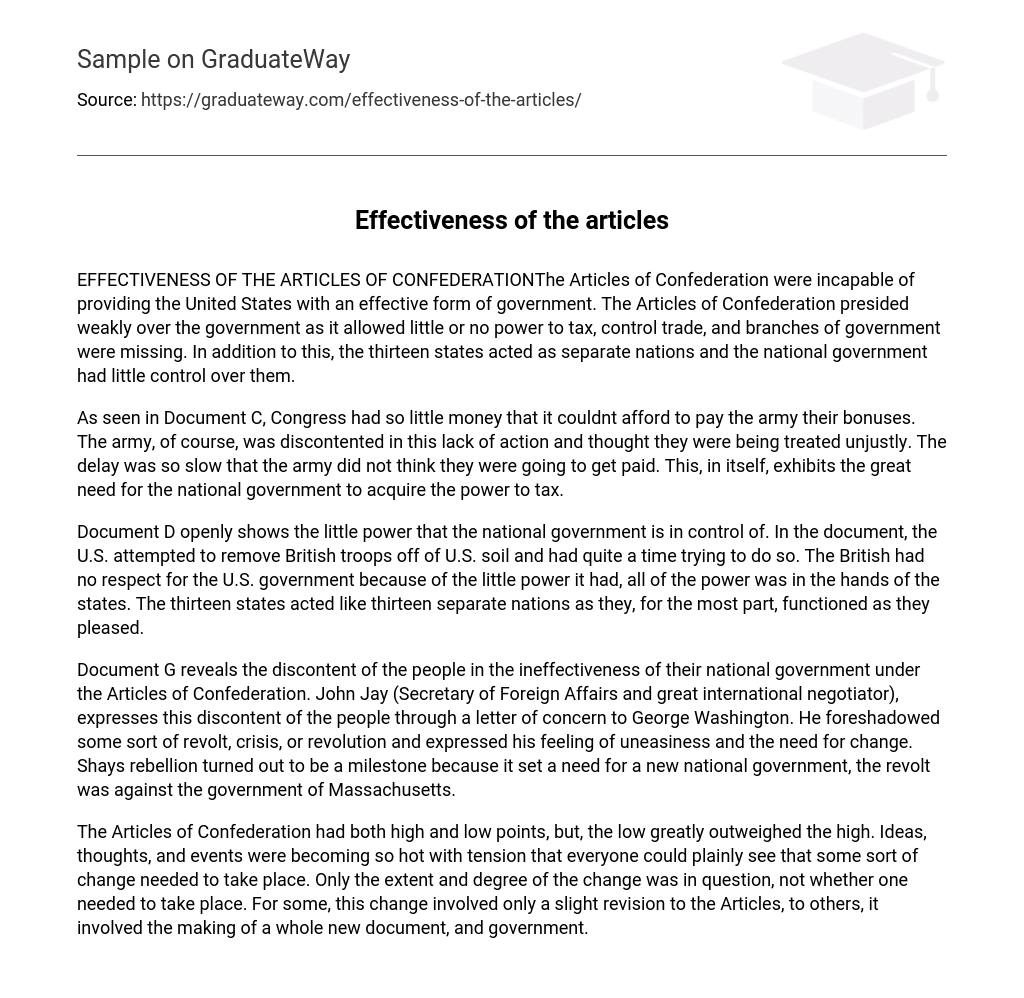The Articles of Confederation were ineffective in providing the United States with a strong government. These articles lacked the ability to tax, regulate trade, and establish all branches of government. Moreover, the thirteen states operated independently like individual nations, with the national government having minimal control over them.
According to Document C, Congress had insufficient funds to pay the bonuses owed to the army. Consequently, the army became dissatisfied with the lack of action and believed that they were being treated unfairly. The delay in payment was so prolonged that the army began to doubt whether they would ever receive their due compensation. This situation clearly demonstrates the urgent necessity for the national government to have the authority to impose taxes.
In Document D, it is evident that the national government has limited control. The document demonstrates the struggles faced by the U.S. in attempting to remove British troops from American soil. The British showed disregard for the U.S. government due to its lack of power, as the states held all the authority. The thirteen states acted independently, resembling separate nations, and operated according to their own preferences.
Document G shows the dissatisfaction of the people with their national government under the Articles of Confederation. John Jay, the Secretary of Foreign Affairs and a skilled negotiator, expresses this discontent in a letter to George Washington. He predicts a possible revolt, crisis, or revolution and emphasizes his uneasiness and the need for change. Shays rebellion marked a turning point as it highlighted the necessity for a new national government; the rebellion was directed against the Massachusetts government.
The Articles of Confederation had both positive and negative aspects, but the negative aspects were much more significant. The increasing tension in ideas, thoughts, and events made it clear to everyone that change was necessary. The extent and nature of the change were the only matters in question, not the need for change itself. Some believed a slight revision to the Articles was sufficient, while others advocated for creating an entirely new document and government.





